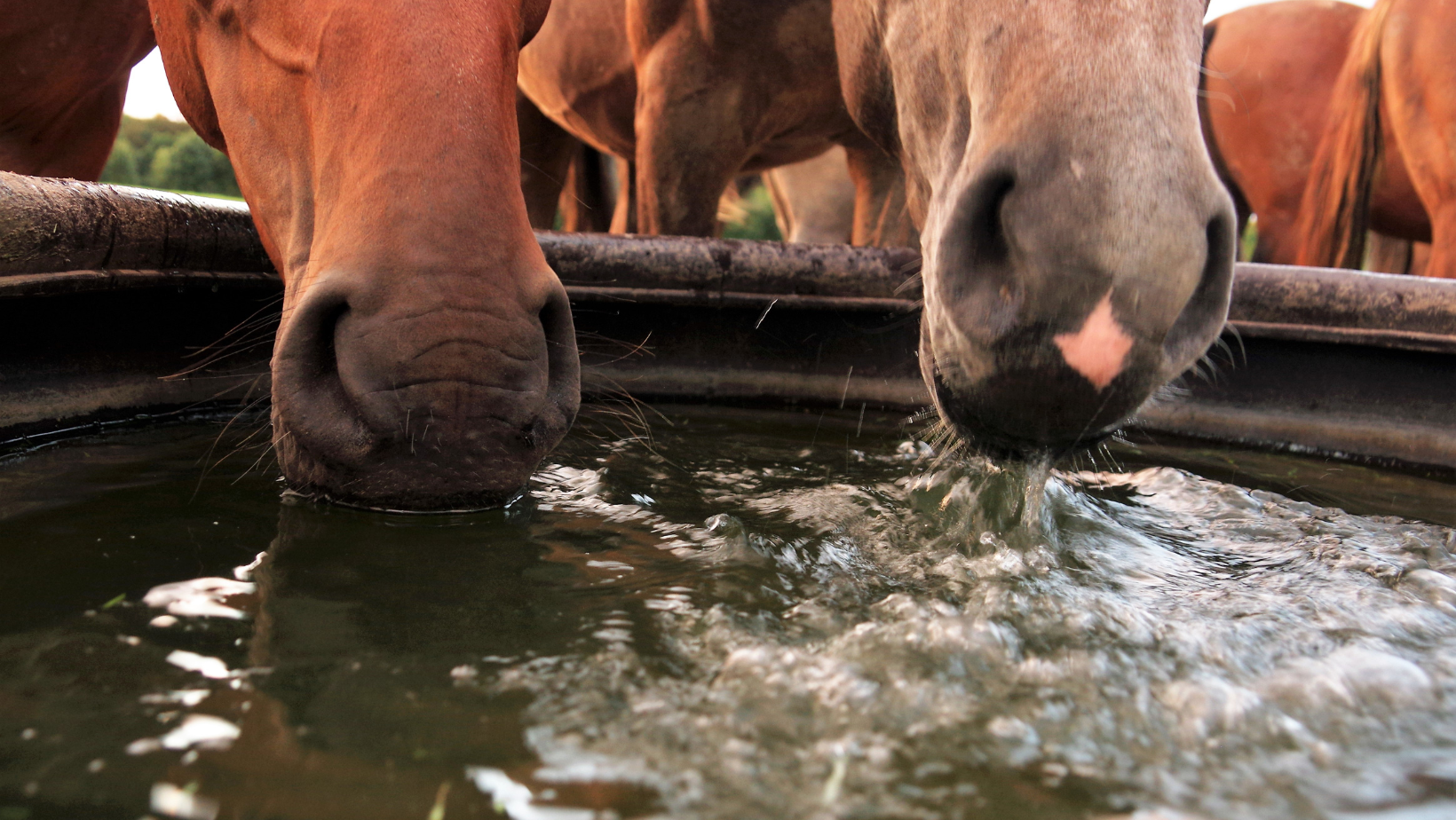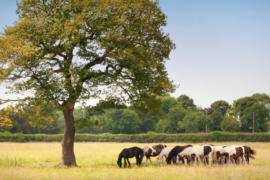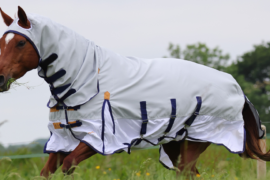Water makes up approximately 65% of body mass in adult horses and a staggering 80% in foals – this statistic alone is enough to highlight the importance of water in horses. Lack of water can however lead to dehydration which itself poses potential risks. We have compiled some tips and tricks for combatting dehydration and assisting in rehydration this season.
What is dehydration?
Dehydration can occur through may ways but essentially it’s when your body does not obtain the fluid it needs to maintain a healthy equilibrium – in similar terms it’s when your body looses fluid without replacing it. Many variables can influence hydration levels in horses such as exercise, sweating, diarrhoea and general water intake.
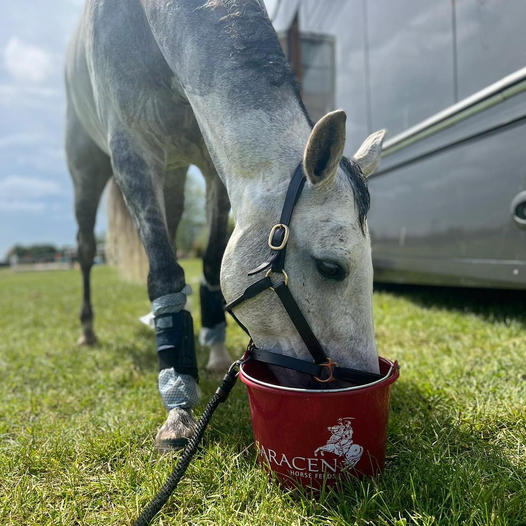
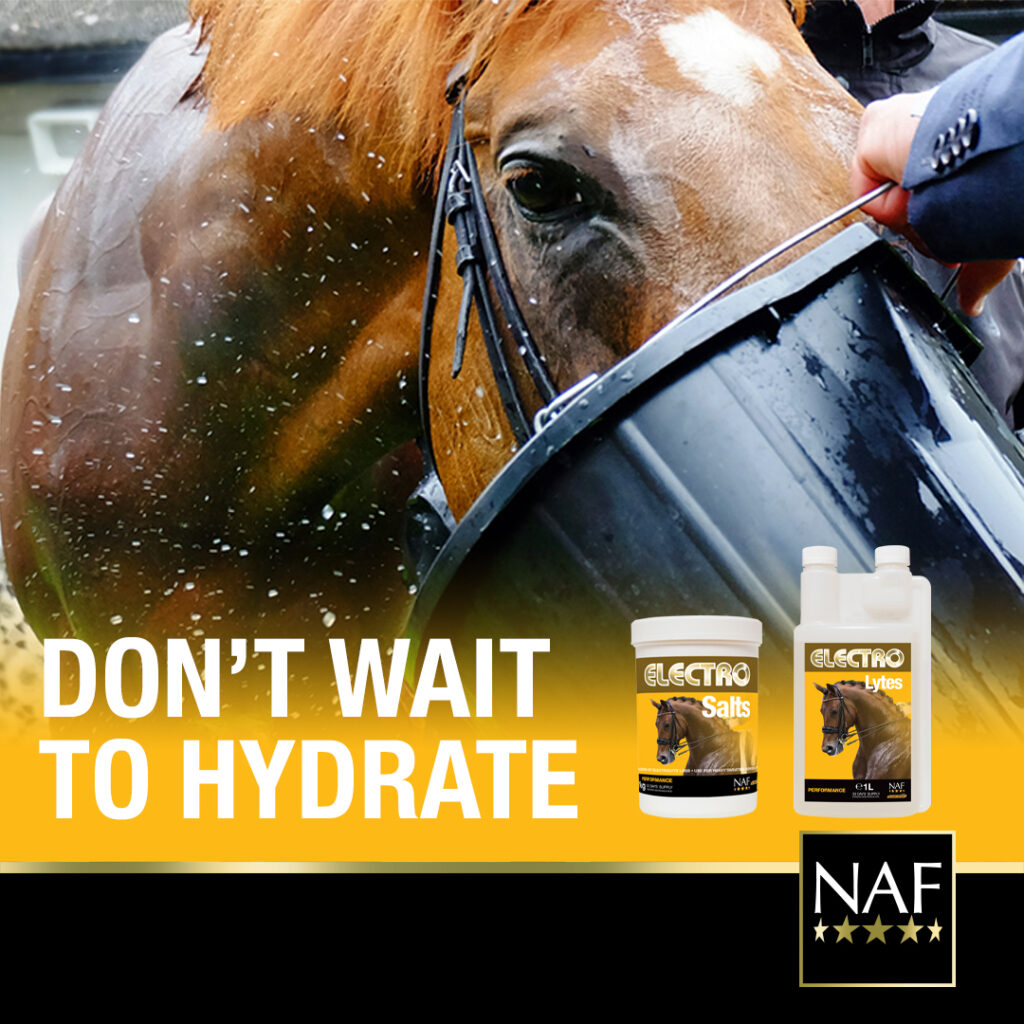
What are the signs of dehydration in horses?
Dehydration in horses can show in many ways. Generally speaking the main signs include loss of elasticity in the skin (pinch test), reduced or dark urine, lethargic behaviour and slow capillary refill when tested.
The pinch test is a common method used to assess hydration levels in horses. This test is conducted by ‘pinching’ your horse’s skin near the shoulder and timing how long it takes to revert back to it usually state. Skin with a high elasticity (that reverts back to its flat self in no time) signifies a good hydration level. However, if you conduct this test and your horse’s skin takes between 2-4 seconds to revert back, it could signify dehydration. It is important to note that every horse is different and we recommend getting an idea of what is ‘normal’ for your horse.
Here is a list of some dehydration symptoms in horses:
- Loss of skin elasticity (Pinch Test)
- Depression or lethargic behaviour
- Red eyes
- Dry gums
- Slow capillary refill (test on the upper gum)
- Dark coloured urine or reduced urine
How to rehydrate a horse…
If your horse is dehydrated it’s important to take action to prevent any serious problems from arising. You can encourage rehydration by ensuring your horse has acess to fresh, clean water at all times – no mucky buckets! Interestingly, studies have found that horses sometimes prefer ‘luke warm’ water, so this may be an option to encourage fluid intake in picky horses. Rehydration can also be achieved through feeding wet food, such as mash based feed – this extra liquid intake can assist in increasing water levels.
How do you prevent dehydration in a horse?
Water is arguably the most important nutrient according to Dr Courtney Miller, Dodson & Horrell – again stressing the important of maintaining hydration at all times. Preventative measures can be implemented to assist in hydration, these include the following:
- Travel with your own water: it may sound silly but some horses can be particular about what water they drink and may not drink if the bucket or water is unfamiliar. Taking your own water when travelling away from home will ensure they do not become dehydrated from water refusal.
- Monitor relationships: bullying can pose a potential risk especially if horses are scared to seek water in a herd. If a horse is being bullied, try removing them from the situation if possible or place multiple buckets of water around the paddock so they have a few areas where they can go.
- Grass over hay: where possible it’s actually more beneficial to feed grass rather than hay. Grass naturally contains approximately 80% water whereas hay is only 15% (haylage slightly more at 30-50% water). If this is not an option you can soak hay to add a water value. One thing to be wary about here is that grass can become scorched in hot weather meaning your horse will naturally drink more out of a bucket as they will not be obtaining the fluid from the grass – always keep them topped up!
- Monitor intake: monitoring your horses intake is a great preventative measure for dehydration. If you are concerned about their water intake it may be a good idea to avoid automatic drinkers as it can be hard to judge how much a horse is actually drinking with these. If you do use automatic water drinkers, we always advise to check they are working properly, are clean and that they are providing fresh water.
- Feed wet: adding extra water to your horse’s feed or feeding a wet mash is a great way of adding extra water to your horses intake – this is a really great method especially over the summer months.
- Water after exercise: we advise letting your horse have small amounts of water after exercise to quench any immediate thirst. However, wait until your horse has cooled down fully before allowing full access.
- Electrolytes: if used correctly electrolytes can assist in replacing the key nutrients lost through sweating (chloride, sodium and potassium are the main ones). Electrolytes are a measure used to prevent dehydration, and encourage recovery after strenuous exercise. Please note, we do not advise feeding electrolytes to horses that are already dehydrated – always encourage fluid intake in this case.
We hope this blog has given you some insight into the potential causes of dehydration in horses and how to rehydrate in the event of dehydration. Following the preventative measurements mentioned above and monitoring your horse’s behavior closely will assist greatly in keeping your horse happy and hydrated this summer.

